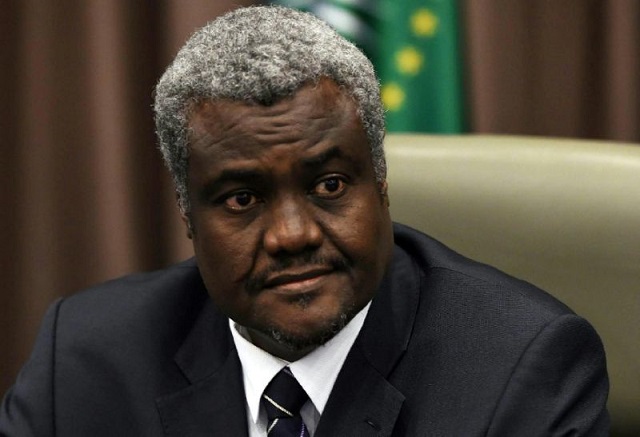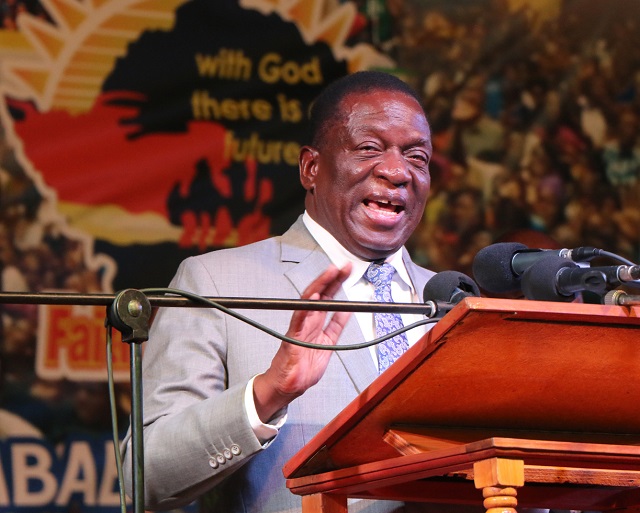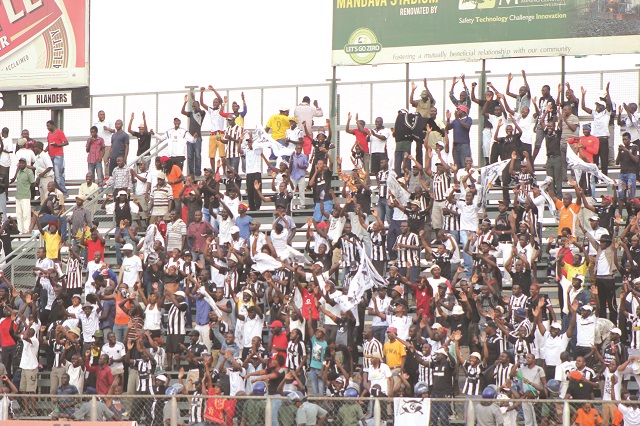AU chief calls for S Sudan sanctions

Addis Ababa – African Union chief Moussa Faki said on Sunday that “the time has come” to slap sanctions on those blocking peace in South Sudan, one of the most intractable wars facing African leaders as they meet in Ethiopia.
At the opening of the 30th annual African Union summit in Addis Ababa, Faki deplored the “unbelievable cruelty” and “senseless violence” of warring parties in South Sudan, which has been torn apart by conflict since December 2013, just two years after gaining independence.
Tens of thousands have died and nearly four million South Sudanese have been driven from their homes, while millions are going hungry in a humanitarian crisis expected to worsen as the lean season sets in.
Efforts to revitalise a 2015 peace agreement resulted in a ceasefire in December which lasted just hours before warring parties accused each other of breaking the truce.
“The time has come to sanction those who are blocking peace,” said Faki.
The United States, the main backer of South Sudanese independence and biggest aid donor to the country, again called for an arms embargo last week in front of the UN Security Council.
Previous efforts to impose a weapons embargo and sanctions have failed with some member states arguing this would be counterproductive to peace efforts.
UN ambassador Nikki Haley told the Security Council that President Salva Kiir’s government was “increasingly proving itself to be an unfit partner” in efforts to restore peace.
She urged African leaders gathered for the summit to “consider seriously the accountability measures it pledged for those who refuse to pursue peace.”
Festus Mogae, a former president of Botswana who leads an international ceasefire monitoring team, on Saturday called for “clear consequences” for those who violate the truce and urged regional trade bloc IGAD not to “maintain a unified approach”.
“For the revitalisation process to be successful there must be a clear understanding among all South Sudanese leaders of the consequences of non-compliance and the determination of IGAD to ensure that agreements are complied with,” he said.
South Sudan descended into war in December 2013 when Kiir accused his former deputy Riek Machar of plotting a coup.
A peace deal was signed two years later but collapsed in July 2016 when fresh fighting in the capital Juba forced Machar into exile. The renewed violence spread across the country, and numerous new armed opposition groups have formed, further complicating peace efforts.
Meanwhile, China’s ambassador to the African Union yesterday denounced as “absurd” a report by French newspaper Le Monde alleging that Beijing has been spying on the continental body.
The report published last week claims technicians at the body’s headquarters in the Ethiopian capital discovered last year that the contents of their computers had been regularly copied to servers in Shanghai since 2012, citing several unnamed AU sources.
“I think the report is a sensational story, but is also preposterous and absurd,” Chinese envoy Kuang Weilin said on the sidelines of the AU summit in Addis Ababa.
The twice-yearly meeting is taking place in a soaring conference hall built by the Chinese as a symbol of their friendship with Africa and inaugurated the same year the alleged spying began.
Weilin said the report published last week on the eve of the summit “will undermine the image of the newspaper” but not the relationship between China and Africa.
The AU leadership did not address the report in their opening remarks on Sunday, and Ethiopian Prime Minister Hailemariam Desalegn downplayed Le Monde’s findings.
“There is nothing to be spied (on). I don’t believe it,” he told journalists.
Le Monde says the AU’s servers were changed and its IT systems redone after the copying was found.
The newspaper also reports Ethiopian cyber security experts removed microphones hidden in the desks and walls of the headquarters.
China is deeply invested in Africa, regularly offering low-interest loans and gifts to individual nations and doing $149.2 billion in trade with the continent in 2016. – AFP.












Comments